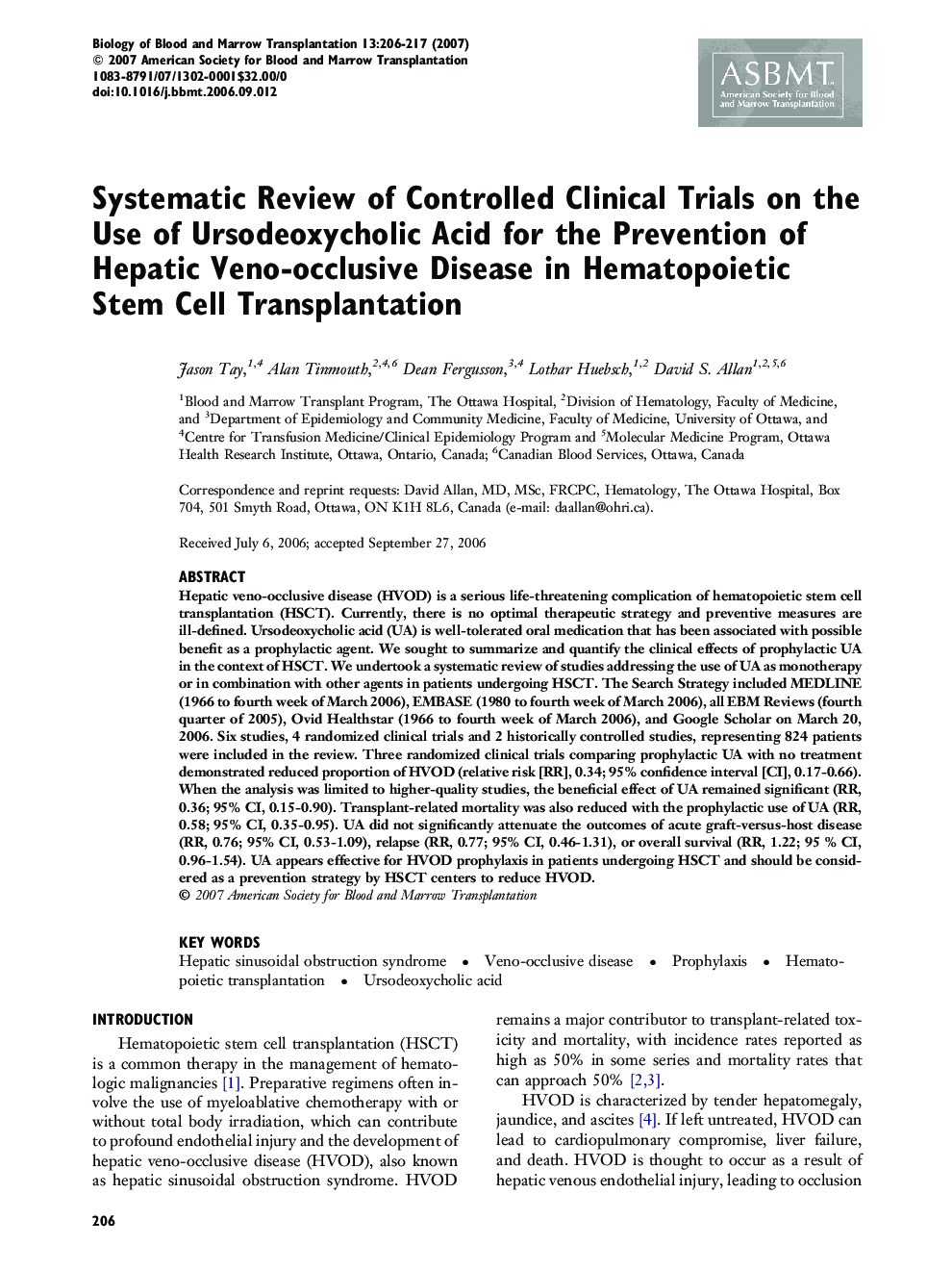| Article ID | Journal | Published Year | Pages | File Type |
|---|---|---|---|---|
| 2104569 | Biology of Blood and Marrow Transplantation | 2007 | 12 Pages |
Hepatic veno-occlusive disease (HVOD) is a serious life-threatening complication of hematopoietic stem cell transplantation (HSCT). Currently, there is no optimal therapeutic strategy and preventive measures are ill-defined. Ursodeoxycholic acid (UA) is well-tolerated oral medication that has been associated with possible benefit as a prophylactic agent. We sought to summarize and quantify the clinical effects of prophylactic UA in the context of HSCT. We undertook a systematic review of studies addressing the use of UA as monotherapy or in combination with other agents in patients undergoing HSCT. The Search Strategy included MEDLINE (1966 to fourth week of March 2006), EMBASE (1980 to fourth week of March 2006), all EBM Reviews (fourth quarter of 2005), Ovid Healthstar (1966 to fourth week of March 2006), and Google Scholar on March 20, 2006. Six studies, 4 randomized clinical trials and 2 historically controlled studies, representing 824 patients were included in the review. Three randomized clinical trials comparing prophylactic UA with no treatment demonstrated reduced proportion of HVOD (relative risk [RR], 0.34; 95% confidence interval [CI], 0.17-0.66). When the analysis was limited to higher-quality studies, the beneficial effect of UA remained significant (RR, 0.36; 95% CI, 0.15-0.90). Transplant-related mortality was also reduced with the prophylactic use of UA (RR, 0.58; 95% CI, 0.35-0.95). UA did not significantly attenuate the outcomes of acute graft-versus-host disease (RR, 0.76; 95% CI, 0.53-1.09), relapse (RR, 0.77; 95% CI, 0.46-1.31), or overall survival (RR, 1.22; 95 % CI, 0.96-1.54). UA appears effective for HVOD prophylaxis in patients undergoing HSCT and should be considered as a prevention strategy by HSCT centers to reduce HVOD.
